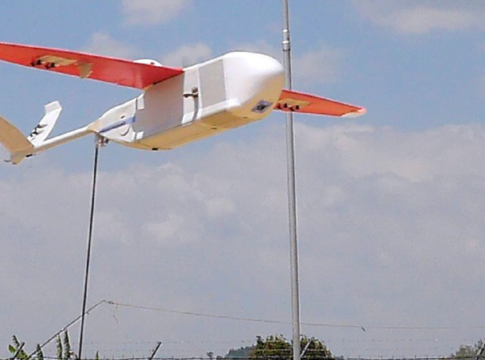The European Commission in Brussels (Belgium) revealed some fascinating AI and blockchain-based projects, which the Commission is funding. Across industrial sectors, from healthcare to energy, from construction to retail, engineers are creating new technologies with potentially disruptive implications for the current architectural order of the global economy.
One of the technologies, an “AI doctor”, shows great promise for the future of healthcare in Africa.
The solution is called CareAi: an AI-powered computing system anchored on blockchain that can diagnose infectious diseases, such as malaria, typhoid fever, and tuberculosis, within seconds. The platform is engineered to serve migrants, ethnic minorities, and those unregistered within traditional healthcare systems. By bringing AI and blockchain together, CareAi uses an anonymously distributed healthcare architecture to deliver health services to patients anonymously. This makes it possible for these invisible cohorts to get access to basic health care, and useful contextual information without compromising their identities, for fear of deportation. This is important, as without access to health services, these communities might pose health risks to the wider population.
CareAi has three components, which include the machine, a finger prick, and a lab-on-a-chip — a mature technology that was originally pioneered by George Whitesides, a chemistry Professor at Harvard University.
To use it, a finger is pricked for a drop of blood, and the blood is deposited onto the chip, which is then inserted into the machine. The blood sample is analyzed by the the AI-based health assistant that references a vast array of medical and diagnostic libraries, dispensing advice with a corresponding rating of confidence.
CareAi’s diagnosis is based on a statistical analysis to all of the data collected: if I see “A” in your blood and medical journals say that means you have malaria, CareAi can say whether you have malaria up to a certain confidence level. Based on the blood sample, the device would diagnose a disease where one exists. The outcome is then delivered on the machine screen with a printout, providing confidence of analysis and further actions which may include prescriptions at participating pharmacies or escalation of the case for medical attention with NGO doctors who supply anonymous medical treatments.
CareAI is a European Commission project, which is funded by the E.U. What they’re doing is different: they’re not inventing any new technology, but rather, are using medical data and correlating that data with libraries of academic data/journals anonymously. Governments and enterprises buy tokens with which to use the app. These tokens are then used to pay the healthcare NGOs and support the servicing of the machines. In exchange, these paying entities have access to medical insights that can help them better inform and plan healthcare research, funding, and policy.
The creators are targeting refugee camps in Europe. Certainly, the applications would extend beyond refugee camps to some developing regions like Africa and India, where the ratio of citizens to doctors remains above global standards. CareAi stationed in markets, mosques, churches and other public arenas could help citizens who live in places with limited health care facilities, especially if the recommendations are personalized with the patients’ medical records.
For Africa, specifically, we are experiencing a massive exodus of healthcare professionals to Western Europe and North America. Despite efforts by governments to stop this migration, the trajectory has not changed, because doctors and other health professionals typically earn more outside Africa. So, in a time when the population is booming, most African countries are losing their medical professionals, exacerbated by the ease with which foreign countries can hire them, and the near impossibility of African governments being able to match their foreign wages. This is where technology offers promise, and products like CareAi could become catalytic when they begin to penetrate into villages and cities across the continent. If AI systems could handle some of the minor healthcare issues, the available healthcare professionals can focus on the most difficult issues. Indeed, the technology could bring parity, removing the need of many healthcare professionals, and establish functioning service equilibrium in the healthcare sector in Africa.


